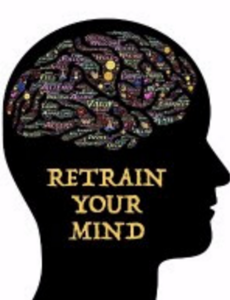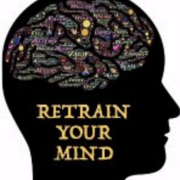The Mindful Money Coach Blog
Money and The Brain
Happy New Year everyone!
This month’s blog is a little behind schedule but I’m going to focus on the positive which is that it’s HERE!
I had a wonderful holiday with family and friends and am looking forward to continuing this money coaching journey with you in 2016. Thanks for the support and wonderful feedback.
The Brain

Once upon a time (in the 70’s) a group of Cambodian women were brought to the U.S. following the savage genocide that took place in their country. In a new culture, they were safe but they couldn’t speak or read the language. They couldn’t make sense of bus signs to go anywhere. They weren’t familiar with American food or its currency so they had difficulties even with simple tasks such as shopping and cooking. It was too much. These women had seen things that their minds couldn’t accept and with these new challenges added on to their already traumatized minds they started going blind.
Eventually some were declared psychosomatically blind, no sight whatsoever.
So what does this have to do with money? A lot. Basically, everything. Money is a core survival issue and that’s true even if a person grows up with affluence. We know without money we cannot have food and shelter, we would struggle to survive.
And what controls our money instincts? Our brain. From inception it protects us with its reactions to a flood of chemical compounds. Neurotransmitters send messages from the brain to the body – thus a baby will cry when it’s hungry.
Stress hormones kick in if we’re anxious or uncomfortable. Adrenaline takes over when there is a real threat and the brain develop its fight-or-flight response. These patterns of reactions are firmed up unconsciously in the brain between the ages of 2 and 12. According to neuroscientists, this is when most of our brain development occurs.
As young adults, we learn about money with our primitive brain which is instinctive. That’s why our life-long financial behaviors are more emotional and reactive than rational and logical. The brain’s mainframe is in place from an early age, learned from examples set by our families and environment and picked up unconsciously as our core survival skill. And money, remember, is a survival issue.
So where are we as adults when we handle money? It depends on that past. To know where we stand requires us to examine and explore our histories. If we are unable to, we will continue to lack awareness and have no control over our finances. Most people handle money very well, but many do not and the problem dominates their life. Why is this? Because each of us react to stress or hardship differently. Our personality plays a factor in this. A naturally more extroverted person reacts to stress or hardship in a way that’s different from the introvert. Perhaps a more outgoing child is able to confront and deal with the stress through their own learning capability and self-confidence when the flight or fight response is triggered. But a reserved child facing the same stress may chose the flight option and will quickly withdraw. This flight response only grows stronger as does the fight response depending on how often they’re encountered and how successful the outcome. From these childhood experiences we set a pattern of behaviors that continues to run our adult lives. When we are able to confront and accept what our early life imprinted on us, good and bad, then we can start to redirect our brains and behaviors.
In the next blog we will examine how you can redirect your brain and behaviors in order to achieve better money management skills.
(By the way, when those Cambodian women were taught English, could read bus signs, and got acquainted with our vegetables, they could see.)
Read story at http://articles.latimes.com/1989-10-15/news/mn-232_1_vision-loss
Don’t Go Broke This Holiday Season
Farnoosh Torabi, a senior contributor for Daily Worth online publication, writes a fantastic article about how to be budget conscious this holiday season, without being a Scrooge. Read the article by clicking here.
Are you a Money Martyr?
By Vanessa Pearson
December 2015
With the holidays here, what better time to discuss the next Money Archetype:
The Martyr. (Bet you know one.)
Am I One?
Money Martyrs live to serve others despite the suffering it may cause them. Be it monetary, emotional or both. Somewhere in life, Martyrs learned that serving others brings not only satisfaction but a quiet pride. It feels good. The more success they have, the more they believe their aid is necessary because not only do they feel good doing it, they are the only ones who do it ‘RIGHT’. It becomes their pattern. It feels natural. Perhaps they were relied on heavily in childhood. Maybe as the oldest child they were expected to care for their siblings or even an adult. Whatever the circumstances, as adults their behavior manifests itself in a need to care for others whether their services are necessary or not. In fact, they become so busy with their care-taking that Martyrs neglect their own needs. Often in denial of needing any help at all.
Haven’t you met or heard from friends or family members who tell you how constantly ‘busy’ or ‘tired’ they are from solving problems for family or friends? But offer to help and you will generally be turned down. After all, it’s a hassle to explain how to do it and you couldn’t possibly do it ‘right’. Martyrs are perfectionist with high expectations of themselves and others, so they’re bound to be let down when others don’t meet their standards. And this is the cycle. It allows them to secretly feel superior over and over again. In this self-fulfilling cycle they form an unconscious attachment to their own ‘suffering’ caused by ignoring their own needs. They become silently resentful of their self-sacrifice and the only relief is to be in control and to control others.
“The only gift I have to give, is the ability to receive. If giving is a gift, and it surely is, then my gift to you is to allow you to give to me.” – Jarod Kintz
Can I stop being a Martyr?
First: What drives the Martyr’s behavior?
The cycle, the pattern, drives it. Constantly relied on, the Martyr’s own needs are forgotten or neglected. They’ve grown used to this. It feels natural. They have justified the lack of support or care from others by forming perfectionist standards that allow them to rationalize their behavior and confirm once again that they are simply more capable than most. Sadly for the Martyr, it becomes unnatural for them to ‘receive’ help. It feels awkward when attention is focused on them or when they are asked what they need or want. They feel shame in asking for help. Especially when they are so capable for others, how could they need any help at all?
To stop the martyr cycle, they must own up to their wounded self. They must recognize their own neglect. They need to recognize their motivations in rescuing others. Is it an unconscious desire to help themselves? Is it a familiar pattern, a knee-jerk reaction that helps them to be in control? Is it simply the need to feel superior? Once Martyrs can identify their hidden wounds, learn to heal and let go, then they will be opened to receiving from others. Maybe they will realize that it is okay, even normal, to let someone else take charge occasionally, that they are not always obligated to do so. Recovering Martyrs need to set boundaries and lower their perfectionist expectations. When they learn to open wholeheartedly and receive what they compulsively give, then they will be the wise and compassionate archetype that they’re meant to be.
So during the upcoming holidays, stop for a minute and think about what motivates you when you are shopping and planning for family or business events. Are you martyring yourself for others? Have you lovingly set boundaries on what you can and can’t do? Can you accept help and receive it comfortably? If you can, it is a great and life affirming gift.
Until next time, peace and joy to you and yours.
–Vanessa
“The only gift I have to give, is the ability to receive. If giving is a gift, and it surely is, then my gift to you is to allow you to give to me.” – Jarod Kintz






